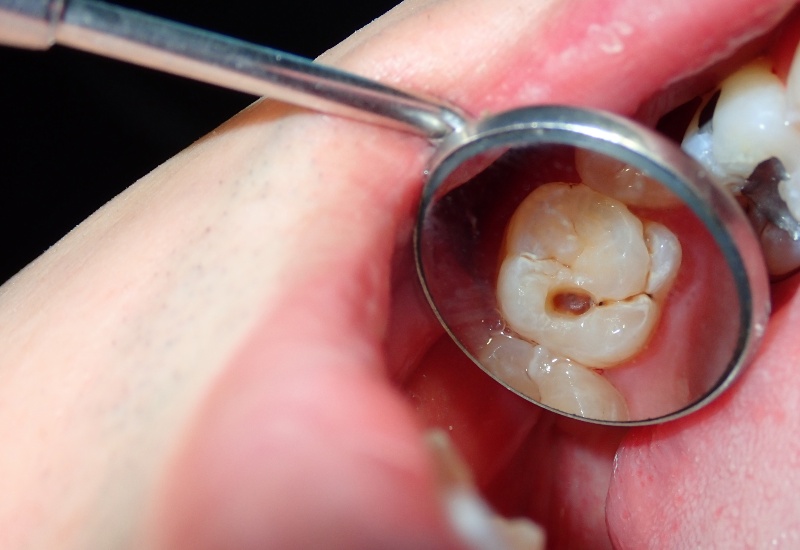How Delaying a Dental Filling Can Affect Your Teeth
While it might seem harmless to delay dental treatment, postponing a dental filling can lead to serious complications that go far beyond a simple cavity. Delaying a dental filling can lead to pain, significant financial burdens, and extensive dental work down the road, especially for residents in Antioch, IL. Let’s explore what happens when you wait too long and why promptly addressing cavities is one of the best investments you can make in your oral health.

What Is a Dental Filling and Why Is It Necessary?
A dental filling is used to repair teeth damaged by decay. During the dental filling process, your dentist removes the decayed portion of the tooth and fills the space with materials like composite resin, amalgam, or ceramic. This dental filling treatment serves multiple purposes: it restores the tooth’s structure, prevents further decay, and maintains your ability to chew comfortably.
Cavities form when bacteria in your mouth produce acids that erode tooth enamel. Without intervention, this decay continues to spread deeper into the tooth structure. A dental cavity filling stops this progression and protects the remaining healthy tooth tissue. Early treatment preserves more of your natural tooth structure, requires less invasive procedures, and costs significantly less than waiting for the decay to worsen.
What Happens When You Delay a Dental Filling?
The risks of delaying dental fillings become apparent surprisingly quickly. Here’s what happens when you delay a dental filling:
- Decay Spreads Deeper – When left untreated, cavity-causing bacteria continue eating away at your tooth. What starts as surface-level decay eventually reaches the dentin, the layer beneath your enamel. Once decay hits, it spreads and can cause sensitivity to hot and cold foods.
- Pain and Sensitivity Increase – As decay approaches the tooth’s nerve center (the pulp), you’ll likely experience increasing discomfort. This might start as occasional sensitivity but can quickly escalate to constant, throbbing pain that interferes with daily activities.
- Risk of Infection – Perhaps most concerning is the potential for bacterial infection. When decay reaches the pulp, bacteria can infect the tooth’s nerve and blood vessels, leading to an abscess—a painful pocket of infection that can spread to surrounding tissues.
Long-Term Effects of Avoiding a Dental Filling
The consequences of postponing dental cavity filling treatment become increasingly severe as time passes. Long-term effects of avoiding a dental filling include:
- Root Canal Treatment – Once decay reaches the tooth’s pulp, a standard filling is no longer sufficient. You’ll likely need root canal therapy, which involves removing the infected pulp, cleaning the tooth’s interior, and sealing it. This procedure is more time-consuming, expensive, and uncomfortable than a routine filling.
- Tooth Loss – In severe cases, extensive decay can damage the tooth beyond repair. Tooth extraction becomes the only option, leaving a gap that affects chewing and can cause adjacent teeth to shift. Replacing a lost tooth involves additional procedures and significant expense.
- Systemic Health Impact – Dental infections don’t always stay localized. Bacteria from an untreated tooth can enter your bloodstream and potentially contribute to heart disease, diabetes complications, and other severe health conditions. Research continues to reveal connections between oral health and overall wellness.

Why Early Treatment Is the Best Option
Understanding the importance of dental fillings means recognizing that early intervention offers the most favorable outcomes for your health and wallet. Here’s why early treatment is the best option:
- Preserves Natural Tooth Structure – When you address decay early, your dentist can remove only the damaged portion while preserving the maximum amount of healthy tooth structure. This maintains the tooth’s strength and reduces the likelihood of future complications.
- Minimizes Discomfort – Early-stage cavities typically cause minimal discomfort during treatment. You might not even need anesthesia for tiny fillings. Waiting until the decay causes significant pain often means the treatment will be more involved and uncomfortable.
- Prevents Emergency Situations – Dental emergencies are inconvenient, painful, and expensive. They often occur at the worst possible times, such as during vacations or important work presentations. Addressing cavities promptly prevents these urgent situations.
- Cost-Effective Approach – Timely dental fillings can be a significant cost saver. Insurance plans typically cover preventive and basic restorative treatments like fillings at higher percentages than major procedures like root canals or crowns.
Tips to Prevent Cavities and the Need for Fillings
While knowing when to get a dental filling is important, preventing cavities altogether is even better. These strategies can help you maintain healthy teeth and reduce your need for restorative dental work:
- Maintain Excellent Oral Hygiene – Brush your teeth twice daily and floss once daily. These basic habits remove plaque and bacteria that cause decay. Consider using an antimicrobial mouthwash for additional protection.
- Watch Your Diet – Limit sugary and acidic foods and beverages, which fuel cavity-causing bacteria. When you do consume these items, rinse your mouth with water afterward and wait at least 30 minutes before brushing.
- Regular Dental Checkups – Professional cleanings and examinations every six months allow your dentist to catch problems early. Your dentist can also apply fluoride treatments or dental sealants for additional protection.
Don’t Delay Your Dental Fillings. Contact Us Today.
Postponing necessary dental treatment might seem like a minor decision, but the consequences can impact your health, comfort, and finances for years to come. The risks of delaying dental fillings far outweigh any temporary inconvenience of scheduling an appointment. If you’ve been putting off a recommended filling, contact us today. Your future self will thank you for taking action now rather than waiting for a small problem to become a major one.
Frequently Asked Questions
How long can I wait to get a dental filling?
You shouldn’t delay getting a dental filling once your dentist recommends one. Decay progresses continuously, and waiting even a few weeks can allow the cavity to grow larger and potentially require more extensive treatment.
How long do dental fillings last?
The lifespan of a filling depends on the material used and your oral care habits. Composite fillings typically last five to seven years, while amalgam fillings last 10 to 15 years or longer with proper care.
Can I prevent cavities from getting worse without a filling?
Once a cavity has formed in the tooth enamel, it can’t heal on its own. Only professional dental filling treatment can stop the decay’s progression and restore the tooth’s function.
